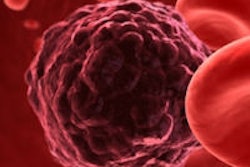Omega-3 fatty acids, contained in oily fish such as salmon and trout, selectively inhibit growth and induce cell death in early- and late-stage oral and skin cancers, according to new research from scientists at Queen Mary, University of London (Carcinogenesis, July 24, 2013).
In vitro tests showed omega-3 fatty acids induced cell death in malignant and premalignant cells at doses that did not affect normal cells, suggesting they have the potential to be used in both the treatment and prevention of certain skin and oral cancers.
The scientists were studying a particular type of cancer called squamous-cell carcinoma (SCC). Squamous cells are the main part of the outermost layers of the skin, and SCC is one of the major forms of skin cancer. However, squamous cells also occur in the lining of the digestive tract, lungs, and other areas of the body. Oral squamous cell carcinomas (OSCC) are the sixth most common cancer worldwide and are difficult and expensive to treat.
In the experiments, the scientists grew cell cultures in the lab from several different cells lines to which they added fatty acids. The cell lines included both malignant oral and skin SCCs, along with premalignant cells and normal skin and oral cells. They found that the omega-3 fatty acid selectively inhibited the growth of the malignant and premalignant cells at doses which did not affect the normal cells.
"Surprisingly, we discovered this was partly due to an overstimulation of a key growth factor (epidermal growth factor), which triggered cell death -- a novel mechanism of action of these fatty acids," stated Kenneth Parkinson, head of the Oral Cancer Research Group at Queen Mary's Institute of Dentistry, in a press release.
While previous research has linked omega-3 fatty acids with the prevention of a number of cancers, there has been very little work done on oral cancers or normal cells, the researchers noted.



















